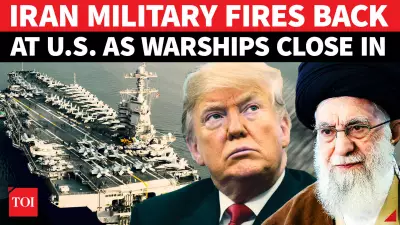
Pakistan finds itself walking a dangerous diplomatic tightrope, attempting to maintain relationships with both China and the United States while its domestic situation deteriorates rapidly. This delicate balancing act appears increasingly unsustainable as economic pressures mount and political stability wanes.
The China Conundrum: An Unequal Partnership
While Pakistan has positioned itself as China's "all-weather friend," the reality of this relationship reveals significant imbalances. The much-touted China-Pakistan Economic Corridor (CPEC), once hailed as a game-changer for Pakistan's economy, has delivered mixed results. Rather than bringing prosperity, the initiative has burdened Pakistan with substantial debt while failing to generate expected economic benefits.
The partnership has proven largely one-sided, with China extracting maximum strategic advantage while Pakistan struggles with the financial consequences. This lopsided dynamic has left Islamabad increasingly dependent on Beijing, limiting its diplomatic flexibility and policy options.
America's Waning Patience
Simultaneously, Pakistan's relationship with the United States continues to fray. Washington's patience with Islamabad's dual approach to terrorism and its deepening ties with China has worn thin. The US has gradually shifted its strategic focus toward India as a more reliable regional partner, leaving Pakistan in a precarious position.
This cooling relationship comes at a terrible time for Pakistan, which desperately needs international support to address its mounting economic challenges. The loss of American goodwill has further isolated Pakistan on the global stage.
Domestic Crisis Compounding Foreign Policy Challenges
Pakistan's external challenges are magnified by severe internal problems:
- Economic collapse: Rampant inflation, dwindling foreign reserves, and unsustainable debt levels
- Political instability: Frequent government changes and military influence in politics
- Security concerns: Persistent terrorist threats and regional tensions
- Social unrest: Public dissatisfaction with governance and economic conditions
These domestic issues severely constrain Pakistan's ability to pursue an effective and independent foreign policy. The government's attention remains divided between managing internal crises and navigating complex international relationships.
The Way Forward: Tough Choices Ahead
Pakistan faces increasingly limited options. Continuing its current approach of balancing between major powers while ignoring domestic fundamentals appears destined for failure. The country requires:
- Economic reforms to address structural weaknesses and attract genuine investment
- Political stability through democratic strengthening and institutional integrity
- Strategic clarity in foreign policy that prioritizes national interests over temporary alliances
- Regional cooperation to reduce tensions and foster economic integration
The current path leads toward greater isolation and economic hardship. Without significant course correction, Pakistan risks becoming increasingly marginalized in regional and global affairs, trapped between competing powers while its own foundations weaken.
The coming months will be critical in determining whether Pakistan can chart a new course or continue its downward spiral. The choices made by Pakistan's leadership will have profound implications not only for its citizens but for regional stability and the broader geopolitical landscape.






